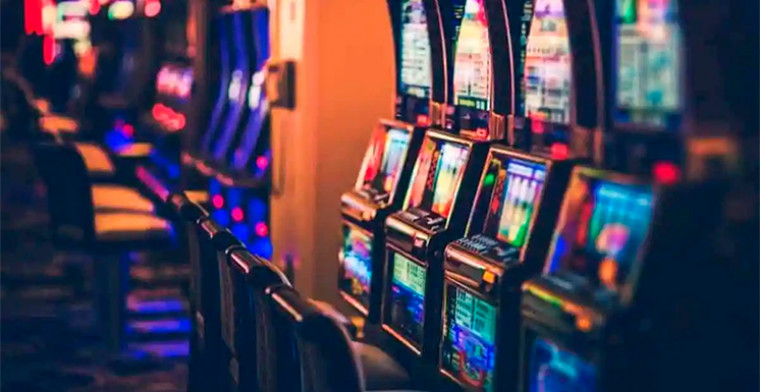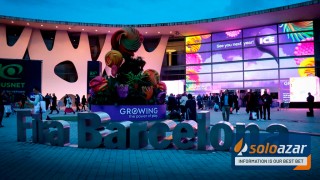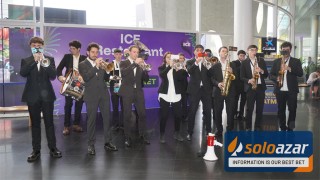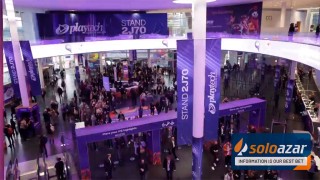What are the Odds of a Casino in Asheville?
Thursday 26 de January 2023 / 12:00
2 minutos de lectura
(United States).- Spectrum Gaming Group determined that North Carolina could support up to nine casinos, including one in the Asheville area, according to a report commissioned by the General Assembly. The new casinos would be in addition to the three already operating on tribal lands. In this article of "Ashville Watchdog", all the voices against and pro about the State considering expanding legalize gambling in the zone.

Last year, online sports betting was the only gambling proposal to gain serious traction in the General Assembly, passing in the Senate but failing in the House by just three votes.
Other forms of gambling North Carolina could adopt include video gaming machines in bars and authorized locations, and online lottery and casino gaming, the report said.
Asheville Casino Could Generate $113 Million
Spectrum projected the Asheville casino, if approved, could support 992 slot machines and 34 tables and generate $113 million a year.
“I think that if sports betting passes that there’ll be an effort to go to the next step,” said Rep. John Ager, a Buncombe Democrat who stepped down in 2022 after four terms in the House. “I just can’t imagine North Carolina allowing nine casinos, but you know, these kinds of things have a life to them, and when you win a couple of preliminary rounds, maybe you could get there.”
State Rep. Sarah Crawford, a Democrat representing Wake County who co-sponsored the sports betting bill while in the Senate, said, “I’m not sure if I’m ready to call [online betting] a gateway, but I think it definitely can help open up the conversations for other types of sports gaming.”
State Sen. Julie Mayfield, a Buncombe Democrat, speculated that Asheville would “not welcome” a casino. “When you think of Asheville, you think of food, music, the environment, local art, downtown Art Deco, the river,” Mayfield said. “Gambling never comes into it. Never, ever”. “I guarantee you,” Mayfield said, “the tribes would fight that tooth and nail.”
Casinos Support Tribal Economies
Casino gambling is currently allowed in North Carolina only on tribal lands. The Eastern Band of Cherokee Indians opened Harrah’s Cherokee Casino Resort in 1997, about an hour’s drive west of Asheville, and in 2015 added the smaller Harrah’s Cherokee Valley River, in Murphy, NC.
In 2021, the Catawba Nation opened the Catawba Two Kings Casino in Kings Mountain, west of Charlotte.
The tribes have pacts with North Carolina that require them to pay six percent of their gaming revenues to the state.
The casino in Cherokee has a hotel with more than 1,100 rooms, the largest in the state, and the casino is one of the highest grossing in the country, according to the Spectrum report.
Tribes typically do not disclose their gaming revenue, but Spectrum estimated that the two Cherokee casinos generated net revenue of about $900 million per year.
Gambling revenue has helped the Cherokee build schools, nursing homes and hospitals, and a portion of the revenue goes directly to tribal members through bi-annual payments.
Tribal member David Smith has owned Bearmeat’s Indian Den in Cherokee for more than 30 years. Before gambling, “it was just, do what you can with what you got,” he said. “In the wintertime it was so bad that I closed up for a month or two, January and February, because there wasn’t nobody traveling through.”
But “with casinos here, it has helped everything and everybody,” Smith said.
The bi-annual payments to tribal members 18 and older — the checks for one six-month period in 2021 totalled $8,840 per person — provides financial security that did not exist before casinos, Smith said.
“It’ll put you ahead,” he said. “You won’t have to worry about where your next payment’s going to be on your car, your next payment’s going to be on your TV or house or anything else. That helps us a lot.”
Principal Chief Richard Sneed and other Cherokee government officials did not respond to requests for comment from Asheville Watchdog on the possibility of North Carolina legalizing casinos statewide.
“If that did come to pass,” Smith said, “it would hurt. But you can bet your bottom dollar that the tribe will be on top of that and make sure if possible that doesn’t happen.”
100 Percent About the Money
The legislative battle to win support for online sports betting in North Carolina offers a glimpse into the high stakes of legalized gambling.
The wagering bill that almost passed last year would have authorized online and mobile betting for adults on professional and college sports, video game tournaments, and amateur sports, although the House eliminated amateur and college sports at the last minute in June.
A 2018 U.S. Supreme Court ruling allowed states to legalize and regulate sports betting. More than 30 states plus the District of Columbia have since done so, including two of North Carolina’s neighbors, Virginia and Tennessee.
“We can join the tide or we can wait and let it go,” Rep. Wesley Harris, a Democrat from Mecklenburg, said during a June 2022 debate on the North Carolina House floor.
Proponents, including Rep. Crawford, say illegal betting is already occurring in North Carolina in the amount of $1.7 billion a year. “We are leaving just a ton of money on the table,” said Crawford.
Opponents cite statistics on gambling addiction and stories of families split apart and financially ruined by gambling debts. According to the National Council on Problem Gambling, “The rate of gambling problems among sports bettors is at least twice as high as among gamblers in general. When sports gambling is conducted online, the rate of problems is even higher.”
In the House debate, some lawmakers described sports betting companies as predatory, hooking new betters with the lure of free wagers.
Former Rep. Ager initially supported the bill for the tax revenue it would generate but became persuaded of the harm it could bring and “how difficult it is for anybody to really make any money except the sports betting companies.”
“I didn’t really appreciate the amount of advertising they do,” Ager told Asheville Watchdog. “Then I got worried about, gosh, people are just putting this stuff on their credit cards, and how they’re going to pay for it.”
Sen. Mayfield said sports betting is “just about people with a lot of money making a lot more money to no societal benefit … It is 100 percent about the money.”
From Sports Betting to Casinos
Sports betting may just be the beginning of a larger attempt to legalize more gambling in North Carolina. A behind-the-scenes effort may already be under way, legislators told Asheville Watchdog.
In 2019, legislators passed SB 574 titled, “An Act to Study the Status of Sports Betting and Whether or Not to Establish a Gaming Commission.”
The bill authorized the North Carolina State Lottery Commission to examine the feasibility of sports betting as well as on-site betting at horse steeplechases, and the creation of a commission to provide oversight of gaming. Nowhere in the legislation did it mention casinos or video gaming or online lottery games.
But Spectrum Gaming, hired to conduct the study, looked at all of those forms of gambling along with pari-mutuel horse racing.
Lottery spokesman Van Denton pointed to one line in SB 574 that he said was the basis for the types of gambling considered: “Examine gaming activities currently prohibited, gaming activities currently authorized by the State, and the feasibility of the General Assembly authorizing new gaming activities.”
The scope of the study means “somebody’s pushing” other forms of gambling, Ager said.
“They knew well that all these other things would be considered,” he said.
Denton said the Lottery Commission paid Spectrum $452,650 for the report on “current and potential new gaming activities” and three others: one on steeplechase wagering; another on sports betting; and another on problem gambling services in North Carolina.
Rep. Crawford said legislators often create studies like the one exploring new forms of legalized gambling “so that the state can get some good research about is this good for North Carolina? … And it starts to get the dialogue happening, not just with the public, but in the [Capitol].”
Expanded Gambling Inevitable
The report on current and potential gaming estimated that illegal gambling in North Carolina, through bookmakers, online sites and gaming machines, is close to a $2 billion-a-year industry, “thus depriving the State of as much as $538 million in state gaming taxes.”
If North Carolina legalized more gambling, Spectrum projected, casinos would generate $422.6 million in taxes to the state by year three.
Casinos have become a popular revenue-generating source for many states. Before the 1990s, they were legal only in Nevada and Atlantic City, N.J. The U.S. now has more than 1,000 casinos in 42 states on Native American tribal land, on boats, in racetracks, and city centers.
Spectrum determined that North Carolina could support up to nine casinos in the Metropolitan Statistical Areas (MSAs) of Charlotte, (three casinos), Raleigh Durham, (two), and Asheville, Wilmington, Winston-Salem and Pinehurst (one each). The Asheville MSA consists of Buncombe, Haywood, Henderson, and Madison counties.
Rep. Crawford said the casino debate is “a long way away,” but several legislators told Asheville Watchdog that some form of expanded gambling in North Carolina appears inevitable.
Sports betting will most certainly come up for a vote again in 2023, and Gov. Roy Cooper has expressed support for it, the lawmakers said.
“One of the arguments you can make is that the North Carolina Lottery has made gambling, because it’s state sponsored, more legitimate in people’s eyes,” Ager said. “And so maybe it has kind of put the wind behind the sails of these other ideas of raising money through casinos.”
By Sally Kestin and Zane Meyer-Thornton
Categoría:Legislation
Tags: Sin tags
País: United States
Región: North America
Event
ICE Barcelona 2026
19 de January 2026
Nadia Popova from EGT on ICE Barcelona 2026:"The new concept of our stand made a strong impression on visitors"
(Barcelona, SoloAzar Exclusive).- In this post-event interview from Barcelona, Nadia Popova, EGT’s Chief Revenue Officer and VP Sales & Marketing shares insights on the company’s standout presence, its “All eyes on us” stand concept, key product highlights, and the strategic partnerships forged at ICE Barcelona 2026.
Friday 20 Feb 2026 / 12:00
Luz Beatriz Jaramillo Serna of 21Viral: “Our presence at ICE Barcelona 2026 was exceptionally positive”
(Barcelona, SoloAzar Exclusive).- Following her participation at ICE Barcelona 2026, Luz Beatriz Jaramillo Serna, Head of Business Development, Marketing and Sales for Latin America at 21Viral, analyzes the commercial impact of the event, the trends set to shape the industry’s direction, and the company’s strategic priorities to consolidate growth across the region and new regulated markets.
Monday 16 Feb 2026 / 12:00
Toni Karapetrov from Habanero on ICE Barcelona 2026: Regulated Growth, Localization and Strategic Expansion Drive 2026 iGaming Strategy
(Barcelona, Exclusive SoloAzar).- In this interview, Toni Karapetrov, Head of Corporate Communications at Habanero, shares insights from ICE Barcelona 2026, highlighting premium content innovation, high-level industry engagement, key iGaming trends such as localization and gamification, and the company’s strategic focus on regulated market expansion and sustainable growth in 2026.
Friday 13 Feb 2026 / 12:00
SUSCRIBIRSE
Para suscribirse a nuestro newsletter, complete sus datos
Reciba todo el contenido más reciente en su correo electrónico varias veces al mes.



















